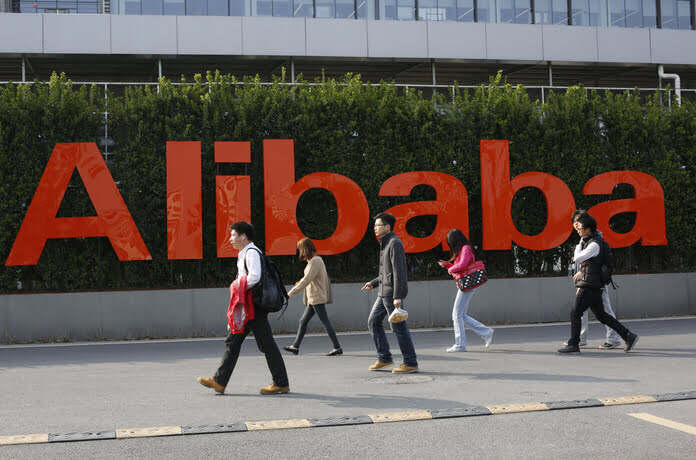Alibaba Group Holding Ltd. (NYSE:BABA) has undergone a significant leadership shakeup, replacing a key executive in its e-commerce division and announcing plans to establish a new entity overseeing global investment assets. This move is part of a broader series of changes disrupting the once-dominant Chinese online giant.
Eddie Wu, Chief Executive Officer, will take over from Trudy Dai, a longstanding member of the inner circle since Alibaba’s founding in 1999, as the head of the division managing Alibaba’s primary Chinese e-commerce platforms, Tmall and Taobao. Dai will transition to assist in establishing an entity responsible for overseeing Alibaba’s extensive portfolio of global assets, spanning investments in startups, entertainment, and physical retail. The nature of this entity, described as managing non-core assets, remains unspecified. Alibaba’s shares saw a 2.7% increase in Hong Kong following the announcement.
This surprising decision reflects Alibaba’s ongoing efforts to revitalize the company in the face of missteps, regulatory scrutiny, and challenges to its market dominance. Dai’s departure marks another chapter in the company’s response to post-COVID consumption fluctuations, a prolonged government crackdown, and the recent emergence of competitors like PDD Holdings Inc. and ByteDance Ltd.
Eddie Wu, who assumed leadership just months ago, aims to groom a new generation of managers for long-term success. The current decisions suggest a strategic move to assume direct control over underperforming divisions while exploring the potential sale of businesses deemed less essential to core divisions in cloud computing, retail, and logistics.
Li Chengdong, head of the Beijing-based Internet think tank Haitun, commented on Alibaba’s strategy, stating, “Alibaba wants to go into battle with a light pack, and this is a way to handle a lot of its more burdensome and non-core businesses, which hinder the overall competitiveness and flexibility of the company.”
Despite being China’s most valuable company in the past, Alibaba has fallen behind Tencent Holdings Ltd. in games and social media leadership. It also lost its position as China’s top e-commerce operator to the eight-year-old PDD, propelled by the success of its shopping app, Temu.
In November, Alibaba’s founder, Jack Ma, broke years of silence, urging employees to rally amidst government scrutiny and volatile decisions. The company initially announced a plan to split into six parts earlier this year but later reversed course, parting ways with former CEO Daniel Zhang. Alibaba’s Chairman, Joseph Tsai, emphasized the need to confront the past and instigate a “reset” for the future in an internal memo.
Now focused on reclaiming lost ground, Alibaba plans to reinvest in its two core businesses: cloud computing and e-commerce. By overseeing both divisions, Wu is expected to lead broader restructuring efforts and identify fresh talent for key leadership positions, aligning with the company’s goal of promoting younger leaders.
The company also aims to review its investment portfolio to extract value from its assets. A highly influential leader, Trudy Dai managed Taobao and Tmall, contributing over 40% of the company’s revenue this year. While Alibaba reported better-than-expected revenue in November, driven by overseas business and logistics through Cainiao, the fate of peripheral operations like video service Youku Tudou and the InTime department store chain remains uncertain.
Willer Chen, a research analyst at Forsyth Barr Asia, highlighted the reversal of Alibaba’s earlier plan under Daniel Zhang and predicted more sales of non-core assets in the future. The recent changes indicate a consolidation of power at the group level under Wu’s leadership.
Featured Image: Megapixl















